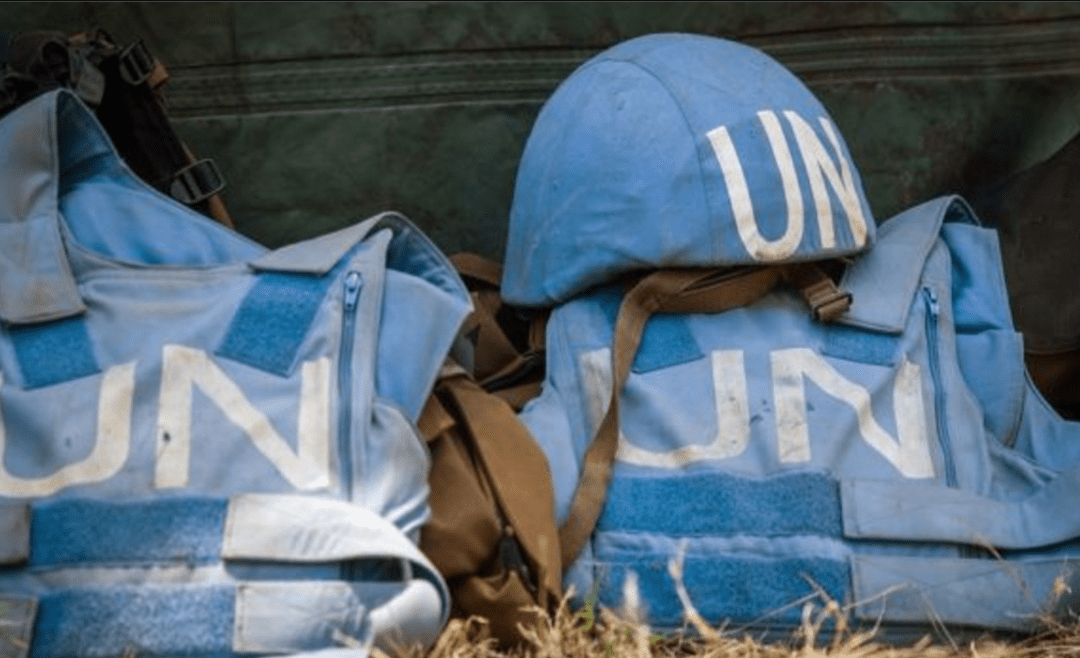The best way to secure a more peaceful future for Afghanistan is through a United Nation peacekeeping operation.


The best way to secure a more peaceful future for Afghanistan is through a United Nation peacekeeping operation.
Good mornin' duck fans! Let's start the week by revisiting last week's firestorm in ... Afghanistan Hamid Karzai has become a bewildering enigma for many Americans as he launched yet another verbal...
US "combat operations" in Afghanistan are officially scheduled to wind down in 2014. And media attention is now turning toward speculating (i.e. relaying contending institutional preferences...
Another Sunday, another military puff-piece from the NY Times. Yesterday's issue promoted the idea that America is threatened by a drug trafficker-terrorist network emanating from Central America....
I often find myself in disagreement with Amitai Etzioni, but he does makes some sense in his recent Politico op-ed on Petraeus' "metrics" for progress in Afghanistan: The newest way General Petraeus plans to measure success in the war in Afghanistan reminded me of what the government did when its campaign to persuade the public to stop smoking did not make much headway. It stopped counting how many people had had their last cigarette - and started counting how many anti-smoking pamphlets it mailed....Gen. Petraeus has outlined five metrics of military success, including: 'the elimination of...
Yesterday, the New York Times had a story about huge proposed increases in military assistance to Yemen, framed around the "war on terror." Since the Christmas day 2009 attempted airliner bombing that was linked to Yemen, the U.S. was allocated about $155 million in military aid for FY 2010 -- up from about $5 million in FY 2006.The Pentagon's latest plan calls for $1.2 billion in the next six years, about $200 million annually. That's nearly a 25% increase from 2010 and an enormous change in commitment over a short period of time.Apparently, by comparison, Aghanistan is so 2009: “Yemen is...
Last Monday, Julian Assange told reporters in London that the Afghan War Diaries reveal war crimes in Afghanistan, and reiterated this statement on Democracy Now! midweek. The claim has been widely reported and is being reported as fact by some sources. This installment in my series on the Wikileaks story will evaluate this claim and correct a few conceptual inaccuracies circulating in the press coverage.But first, here's what this post is not arguing. I am not arguing that no evidence of war crimes exists in the war logs. Actually, it would surprise me if there are not some genuine...
In 2008, after kicking around the idea for a couple of years, the US formally proposed to create Reconstruction Opportunity Zones (ROZs) in remote parts of Pakistan (FATA, NWFP, earthquake affected areas of Kashmir, a part of Balochistan province) and all of Afghanistan. The idea was modeled on the Qualified Industrial Zones (QIZ) preferential free trade agreement set up to help forge a liberal-economic peace between Israel, the Palestinian Territories, and the neighboring Arab states.QIZThe 2004 Egyptian-Israeli QIZ agreement, which I researched extensively while I was teaching at the...
Although the story has garnered relatively little attention in the US, the Afghanistan-Pakistan Transit Trade Agreement (APTTA) is probably one of the most important developments impacting the medium-term economic and political health of Afghanistan. As the US State Department correctly noted,"This agreement is one of the most important, concrete achievements between the two neighbors in 45 years and represents the most significant bilateral economic treaty ever signed between Afghanistan and Pakistan. It will undoubtedly bring great benefit to the people of both countries and is also a...
At the Shanghai Cooperation Organization meeting three weeks ago Hamid Karzai asserted that "foreign circles" were promoting the cultivation of poppy in Afghanistan. Last Saturday, on International Anti-Narcotics Day in Kabul, Karzai once again argued:"First of all, I would like to say that poppy was not cultivated in Afghanistan before the Soviet Union's invasion. We had very few poppy fields in some parts of our country. This means, we had not been among the poppy-cultivating countries, fortunately. Poppy cultivation has come to Afghanistan following the Soviet Union's invasion, war and...
So, I'm in Brussels this morning meeting with various NATO folks on how they plan to develop a strategy for rebuilding public support for Afghanistan and for the future expeditionary operations outlined in the the Albright Experts Group report and someone comes in with a copy of Rolling Stone. Quite frankly, that's not something I thought I'd ever see -- Rolling Stone had the entire place buzzing....My first reaction: This can not end well for McChrystal. He has a lot of support here, but this crossed so many lines-- civil-military relations, leadership judgment, command authority, the...
It is increasingly becoming evident that the venerable New York Times was played by the Pentagon last week. The announcement by a Pultizer Prize winning journalist that Afghanistan may have up to a trillion dollars worth of mineral resources under its war torn soil made a huge buzz. But this bit of "news" planted by the Pentagon was not very new at all (in fact, as the NY Times article notes even the Soviets knew about some of this) and the timing of the announcement seems very suspicious given the dismal shape of the US-led offensive in the southern provinces. Nevertheless, the news has...